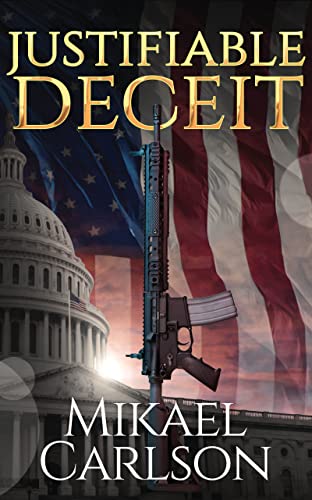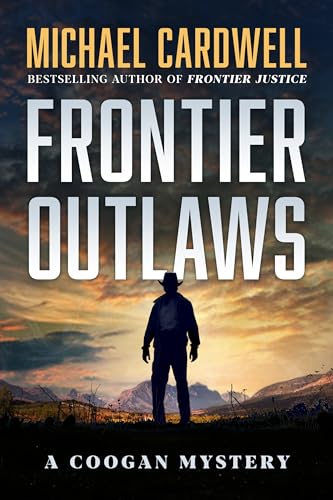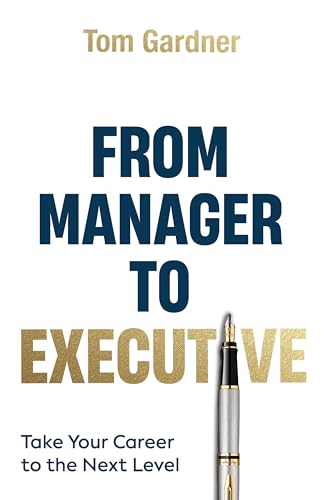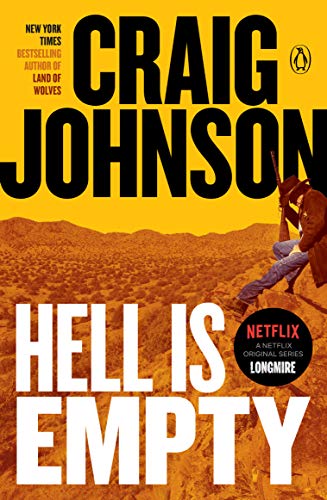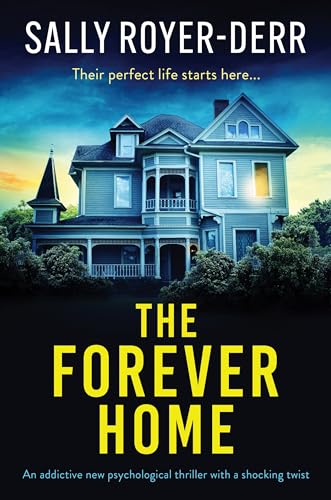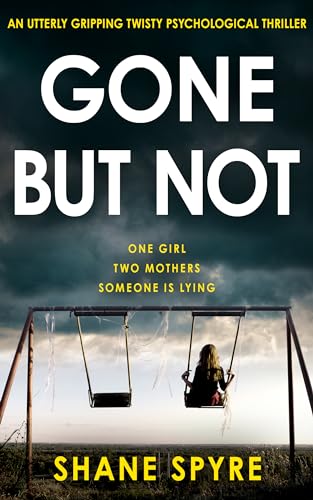On Friday we announced that Joseph J. Gabriele’s Dangerous Illusions is our Thriller of the Week and the sponsor of thousands of great bargains in the thriller, mystery, and suspense categories: over 200 free titles, over 600 quality 99-centers, and thousands more that you can read for free through the Kindle Lending Library if you have Amazon Prime!
Now we’re back to offer our weekly free Thriller excerpt:
4.0 stars – 9 Reviews
On Sale! Everyday Price: $9.99
Text-to-Speech and Lending: Enabled
Here’s the set-up:
In a beguiling tale of deception and murder, desire and theft, seduction and betrayal—where nothing is what it appears to be—a man is murdered and an iconic musical instrument is stolen during a gathering at Eliot Sexton’s Park Avenue apartment. The stolen item—an object of desire worshipped by millions—is the key to solving the crime, or so the detective brought in to investigate believes. The murder, however, is not nearly as straightforward as it seems—nor is the theft.
Though the island of Manhattan presents no shortage of suspects—many of them capable of killing to satisfy their appetites—Eliot, a young economic historian and writer, soon becomes the prime suspect. As he draws closer to the truth behind the theft and murder, he also becomes the killer’s next target.
Irreverent, provocative, and utterly unpredictable, Dangerous Illusions is a weeklong polyrhythmic journey into contemporary New York that will keep readers guessing right up to its thrilling conclusion.
And here, for your reading pleasure, is our free excerpt:
CHAPTER I
I am not a particularly superstitious man, but if something inauspicious were to happen—if a bullet should somehow find its way into my head, if I should fail to find my way home some evening, if any untoward accident should suddenly occur—I thought someone should know the truth. Perhaps I should start with the night Eugene Livingston was killed, though in actuality it all began much earlier. Of course, I didn’t realize that at the time.
As we stepped out of the office that evening, I asked Laura if she would call the police. I had the overwhelming task of telling Charles Livingston of his brother Eugene’s death.
At first, I was unable to find him among the profusion of smiling faces that crowded the living room. As I moved through the circles and triangles of conversation that surrounded me, I was acutely aware of the specific sounds of many different voices, the rising and falling cadences of varied accents, the pitch of laughter, and all of the ambient sounds of the festivities throughout the room. I caught a fleeting trace of an exotic perfume as I walked past a journalist engaged in a heated conversation with three of her colleagues about politics, finance, and fraud. She looked out at me through blue eyes and black lashes, her revealing comments as pointed as the bare breasts concealed beneath her gown. Everything around me contrasted so sharply with what I had just seen that it was impossible to quiet my mind, and I was still reeling by the time I found Charles.
Charles was standing under the archway between the living room and the dining room, speaking with Yvette St. James. The conversation was quite lively and they were laughing. Kate Livingston stood nearby, perched at the corner of the dining room table, pecking away at her plate as she observed them, obviously annoyed by her husband’s laughter.
As I walked toward them, the ensemble played against the rising sound of the storm in an ostinato pattern filled with uncertainty and irregularity. There were touches of darkness to the chords and flourishes of the piano. The guitarist fretted along unable to maintain his usual level of pensive concentration. The bassist frenetically stroked and plucked the strings of her instrument, struggling to keep pace with the storm.
Charles and Yvette both smiled as they saw me approaching, but Yvette’s smile waned almost instinctively. As I tried to summon words that would somehow soften the blow, Charles continued to smile, which only made the task more difficult. The appropriate words, which had already been said too often to Charles, seemed entirely insufficient. Perhaps I had also heard these words too recently to think anything meaningful could be said.
In the long moment after the words had been spoken, he and Yvette both stared at me in silence until a rush of boots thundered into the apartment as a squad of six uniformed officers descended upon the gathering, aggressively pushing their way through black suits and saffron, vermillion, and indigo dresses. The men were uniform in their official blue attire, in their weaponry, in their substantial bulk, and in the geometry of their shaved round heads. Only the irregular protuberances of the cranium and varying vascular patterns beneath their bare scalps distinguished one officer from another. This shorn uniformity, so often associated with the fascist, the mercenary, the convict, or the psychiatric inmate, seemed to confirm a fraternal order.
The guests scattered in terrified confusion as the police advanced into the room.
***
Once the initial terror had subsided, a state of uncertainty remained. Some of the guests, by virtue of education or natural inclination, were accustomed to a healthy skepticism of authority and were not afraid to observe, even study, the police. Those of a more timid disposition, though still unsure of what had happened, clearly felt safer now that the police had arrived and just as clearly wanted to be told what to do. But most of the guests simply kept their eyes down. Some looked nervous, while others evidently did not want to get involved.
As I approached one of the uniformed men, the distinct scraping sound of the elevator gates cut through the silence and two additional police officers entered the apartment, the first, taller and more aggressive, the other, much thinner and clearly his subordinate, in appearance if not in rank. The other officers immediately deferred to them and I led the two men across the living room and into the office.
Neither spoke as they stared into the interior of the room. The taller officer began to rub his jaw and chin, his fingertips rasping across the shafts of the coarse stubble of his beard, clearly unsettled by what he saw. The other policeman began to retch and looked away, trying to suppress a succession of dry heaves.
Eugene Livingston sat across from my desk, his head pitched forward unnaturally, the wavy hair across his right temple wet in glossy streaks of crimson, black, and orange. Blood flowed from a pool collecting in the well of his ear, dripping down along his cheek and neck. Eugene’s lax expression was almost unrecognizable. He stared out lethargically, a gaze of simple and degrading stupidity fixed in his eyes, the front row of his teeth resting effortlessly on his lower lip in an unfamiliar overbite suggesting the lazy inclination of thoughtlessness. The back-left side of his skull was missing, along with his many thoughts and ideas and the grey cerebral matter that had generated them. What had evidently been a river cascading from Eugene was now reduced to a trickle and flowed over a pebbly streambed into an estuary forming in front of the terrace doors and swelling with the incoming rain.
The taller officer was still stroking his chin and staring undecidedly at Eugene’s body when Laura entered the office.
“When I found him,” Laura said, “Eugene was—”
“And who are you?” the officer asked, eager to assert his authority and just as clearly mindless of our loss.
“Laura Arden,” she said.
“When I want to hear from you, I’ll ask.”
Laura stared at the officer, studying him with an anthropological curiosity until he turned away and looked at me.
“And you are?” he asked, with equal contention.
“Eliot Sexton.”
“Well, Mr. Sexton,” he said, a churlish smile shifting the heavily shadowed terrain of his face, “I’m Officer Armstrong. I’m the guy who takes you down to the station.”
“Officer Ripperger,” his partner said, introducing himself in a low, barely intelligible mumble.
A moment later, two paramedics arrived. Observing Eugene Livingston’s body, they shook their heads with a sense of futility and disgust. But for a perfunctory examination and a few questions to collect the requisite data, they left the room without further comment.
Armstrong began to interrogate first Laura, then me, the questions elliptical in their repetition and accusatory in their tone. He grew frustrated with our answers, as if we weren’t telling him what he wanted to hear. We had been through this responsorial ritual three times when he waved us out of the office and began to survey the guests.
Ripperger watched Armstrong in silence, waiting for direction.
“Let’s start taking some names,” Armstrong said, ready to impose his authority on the room.
***
Soon afterwards, a detective arrived with four men in familiar uniforms carrying unfamiliar equipment. A New York Police Department photographer, also with a great deal of equipment, entered almost immediately after them. The detective took off his raincoat and tossed it at Armstrong—relegating Armstrong to a post at the front door with a few short words—and then proceeded slowly into the living room, pulling his badge from the breast pocket of his pale grey suit and displaying it as he studied the apartment and guests.
The small circles and triangles of hushed conversation dispersed as he walked through the room, his eyes running over those along his path. He stopped directly behind Blair Lockhart, pausing to examine the smooth skin exposed by her backless dress, water pouring off him, streaming from his hair and rolling down his nose, which had clearly been broken in three places. Drops of rain fell from the tip of his nose in rapid succession, splashing onto his suit and darkening its fabric, but he seemed too preoccupied with Blair to notice.
Rain continued to fall from the detective and his men as Ripperger ushered them into the office, adding to the water already beginning to accumulate on the narrow oak floorboards in front of the fireplace, the smell of rain intermingling with the scent of apple, cherry, and cedar wood burning in the fire. One of the caterers followed in their wake, applying one kitchen towel after another to the floor to soak up the water they had left behind. When the caterer had finished in the living room and returned to the foyer, Armstrong looked down at his feet, clearly annoyed by the activity of the young woman mopping up around him.
The office door had been closed for several minutes when a series of flashes began streaming through the airspace between the door and the doorjamb.
The murmur of voices grew as the minutes passed. A few of the guests who had been particularly enthusiastic in their enjoyment of the wine and champagne that had been crisscrossing the room throughout the evening still didn’t seem to grasp the seriousness of the situation. Near the center of the room, a financial correspondent from one of the few remaining New York dailies, a famously boring but well-fed man, preoccupied himself with a colossal prawn, while his pretty young wife studied the somewhat younger man sitting beside her. The man, a newly tenured professor, didn’t seem to notice her. He was thoroughly engrossed in the much worldlier older woman opposite him, much to the consternation of both the young woman he had arrived with and the correspondent’s bored wife.
When the detective opened the office door a quarter of an hour later, the ultra-bright white photographic flashes emerged strobe-like in their rapidity and intensity. Officer Ripperger pointed in my direction and the detective walked over to me, taking another long look at the apartment and the guests as he approached.
“Detective Garelik,” he said, in curt introduction. “You own this place?”
“Yes,” I said.
“Live here alone?”
“Yes.”
“Divorced?”
I shook my head.
“Never married?” He looked skeptical, as if being neither married nor divorced was cause for suspicion.
“Widowed,” I replied.
“A bit young to be widowed, aren’t you?”
“It wasn’t something we planned.”
He glanced down at my hands. “Own any guns?”
“No.”
“Have you fired or handled a gun recently?”
“No, I haven’t.”
He smiled and signaled two of the men who had been in the office with him.
“Put your hands out in front of you,” Garelik said.
I felt the eyes of the room on me as the officers tested for evidence of gunshot residue. They collected samples from each hand, front and back, and then collected additional samples from the cuffs of my shirt and the sleeves of my suit jacket.
When they had finished, Garelik dismissed them and continued with his questioning.
“The man who was shot in your office was a friend of yours?”
“Yes, a good friend.”
“Nobody heard anything?”
“Not that I’m aware of.”
“And a musical instrument was stolen?”
“Yes.”
“In oyster black pearl,” he said, more as a statement than a question.
I nodded.
“Nobody saw it walking out the front door,” he added. “It just vanished.”
I ignored his sarcasm.
“That’s your story? More than seventy people saw nothing?”
And so I was taken down to the station.
CHAPTER II
The force of the wind bent the rain at a forty-five-degree angle as Armstrong and Ripperger led me outside. Despite the short distance to the police car, the cold rain saturated my clothing. Armstrong held the car door open and I sat in the back seat of a filthy, beat-up NYPD police car. The rear seat was lower in height than in a consumer automobile and the disintegrating cushions sagged so low that I had to strain to see above the cage barrier. There was something peculiar and foul and strangely unrecognizable in the smell of the car.
The station house was in no better condition. It had clearly been built prior to the last century and little had been done since to maintain it. The patina of the original and evidently only coat of chalk-green paint on the walls and molding was so alligatored that the underlying plaster and wood surfaces were plainly visible. Globe light fixtures filled with dust, insects, and indistinguishable dehydrated forms hung from a tarnished tin ceiling, casting a grey-green incandescent light.
The floorboards sagged and creaked as we walked past the elevated booking desk and the sergeant behind it looked up and paused in the processing of his paperwork. A small line of suspects, very wet and obviously down on their luck, also looked up at our arrival. A group of young men and women in their early twenties, perhaps even in their late teens, were standing directly in front of the booking desk, though they looked more like students than criminals. One of them was speaking with the sergeant.
“Could you please tell me where he is, then?” the young woman asked.
The sergeant did not respond.
“When will I be able to see him?”
The sergeant continued to stare straight ahead, not quite at her but through her, without a trace of emotion or concern, his indifference absolute.
“You can’t just arrest him for speaking at the Great Hall,” she said. “He’s a student at Cooper Union. We all are.”
She was obviously upset and I turned to see what was happening, but Armstrong pushed me along toward the staircase at the far end of the room.
“Why won’t you tell me where he is?” she said, her voice carrying up through the stairwell as Armstrong, Ripperger, and I climbed a dark flight of stairs to an even darker hallway.
Half the light bulbs were out and the air was cold and still. Armstrong and Ripperger told me to wait and entered an unmarked door at the end of the hallway. Darkly stained chairs and benches lined the long corridor and the worn floorboards, eroded by countless hours of restless pacing, served as a testament to more than a century of detainees.
The young woman’s voice floated up from the stairwell and continued to carry along the hallway as she made one futile appeal after another to the desk sergeant, the concern and anxiety in her voice escalating, more disconcerting with each new appeal. I stood in the near darkness and watched the rain pounding against the glass of the stairwell skylight, listening to her intermittent pleas through the staccato patterns of the rain for well over an hour before one of the hallway doors opened.
Two officers came out and escorted a young man toward another room across the hallway. His hands were cuffed behind his back and fresh blood was spattered across his face, his hair, and his white cotton shirt in wild patterns of scarlet and alizarin. His fair skin was battered and purple, his eyes blackened, one of them swollen shut, an overripe plum ready to burst with the slightest pressure.
He heard the young woman’s voice climbing through the stairwell and called out to her, his words slurring from the swelling around his mouth. When the young woman heard him, she cried out, but before he could say anything more one of the officers punched him in the small of his back and they swept him into the room, closing the door behind them.
A few minutes later, Armstrong and Ripperger reemerged into the hallway.
“The lieutenant says he doesn’t need to see you after all,” Armstrong said, the churlish smile returning to his otherwise vacant expression.
As we walked down the stairs, the sound of the young woman’s voice grew stronger.
“We haven’t done anything wrong,” she said. “Why won’t you tell me what you’ve done with him?”
She was crying now, but her pleading still had no effect whatsoever, and the sergeant maintained his complete indifference.
Ripperger smirked at the young woman while Armstrong was informing me that I wouldn’t be able to return to my apartment until the police had finished the initial investigation of the crime scene.
“We’ll bring you to a hotel,” Armstrong said.
“That’s quite all right, I can take a cab.”
“No,” he said. “We’ll take you.”
I really didn’t want to get back into the patrol car. “I’d prefer to take a cab.”
“We’re taking you back,” he insisted.
This was clearly not an act of courtesy on his part. He was determined to put me back in that car.
The young woman turned to look at us as we walked past the booking desk. She was very tired and sad and lost, the other students were worried, and the small line of suspects was a little longer now, though no less wet and certainly no less down on their luck. As I turned to look back at her, Armstrong pushed me along toward the exit.
***
On our way back to Park Avenue and Thirty-ninth Street, the undercarriage of the patrol car scraped exposed granite cobblestone protruding through shoddy asphalt and I began to ache as the car slammed its way from one crater to another.
There were two hotels located in the same block as my apartment at the Phoenix and I asked Armstrong and Ripperger to drop me off at the Vandeventer. Because of its location, I often referred visiting colleagues and friends to the hotel. Built in 1927, it provided a glimpse of prewar New York, despite modernity’s encroachment.
Flashing lights lined both sides of Thirty-ninth Street and reflected off the beveled glass of the heavy wrought-iron doors and the polished brass address plate of the Phoenix. The granite foundation and limestone pediments were bathed in the rotating lights.
It was good to be out of the car.
The rain had lapsed into a fine mist and Armstrong and Ripperger joined the crowd gathering in front of the apartment house as I walked in the opposite direction toward the Hotel Vandeventer. The lobby was empty and only the night manager stood behind the reception desk.
“I’d like a room for what’s left of the night. Do you have anything available on the tenth floor, northwest side of the building?”
He looked at me strangely, puzzled by the request. “That’s overlooking the alley.”
“Yes.”
“You know,” he said, “there was a guy killed in the next building tonight—”
“Yes, it happened in my apartment.”
I couldn’t tell if he was embarrassed by his remark or mine, but he completed the registration with as few words and as quickly as possible.
As soon as I entered the hotel room, I turned off the lights, crossed the room, pulled back the drapes and sheers covering the large windows, and found exactly what I thought I might find.
CHAPTER III
Over the years, I had become aware that the view into the Phoenix was of particular interest to many hotel guests. I would find them perched at all hours, peering into the apartment, transfixed. They were a polymorphic species, migrating and transitory, exhibiting a full range of plumages, color variations, and a spectrum of behaviors unrelated to age, sex, season, or geographic origin.
I sat down at the table beside one of the windows and looked over the narrow alley into the interior of my apartment. All of the guests had left and a medical examiner had since joined Garelik and the photographer in the office. I could see Eugene through the French doors that opened onto the terrace. He was still sitting in the same unnatural position across from my desk, recorded by the flashes of the photographer’s camera every six to ten seconds in a coda of repetition.
Kneeling behind the desk, Garelik was struggling to pick the lock that controlled access to the desk’s upper drawers. When he finally succeeded, he stood up and began rifling through the top center drawer. Grabbing several bundles of cash, he inspected them slowly and carefully and then tossed them back into the drawer. A moment later, he picked up my passport and began flipping through it, pausing occasionally to examine the stamps registered on its pages. He went on to discover a 1963 two-dollar United States Note with its engraved portrait of Thomas Jefferson and its vibrant red seal and serial numbers that I also kept in the drawer. He picked up the note, which had been issued by the Treasury Department during the final months of the Kennedy Administration, and held it out in front of him with both hands, staring at it. He seemed even more preoccupied with this discovery than he had been with the prior ones. Reaching into the corner of the drawer, he retrieved a handful of Liberty Head Dollars dating back to the 1880s. Palming the silver coins in one hand, he jiggled them repeatedly, perhaps charmed by their surprising weight or their inimitable clinking sound, occasionally pausing to rub a gloved thumb over the face of Liberty.
The medical examiner was exchanging words and gestures with the two technicians applying black markers to the floor, furniture, walls, and ceiling as reference points for the photographer. The photographer looked over at them, but then resumed his work, documenting Eugene’s body and the surrounding area in extraordinary detail, one blinding flash following another in a series of photographs taken from multiple angles around the room.
Garelik had moved on to the adjoining drawers, but he must have found them somewhat less interesting, judging from how quickly he searched through them. There was nothing on top of the desk and he went on to four sealed archival boxes resting on top of the wooden file cabinets along the south wall of the room. After fumbling through one box of photographs and documents after another, he decided to open the cabinets below in the same way he had opened the desk. Running his fingertips across the tabs of the hanging folders suspended in the cabinet drawers, he occasionally paused to flip through the contents of the various files, which contained contracts, royalty statements, income tax files, and other personal documents and papers. The graphic materials in the adjoining flat file cabinets were also not exempt from his search.
Soon afterwards, Garelik turned to the bookshelves above the credenza behind the desk and took hold of North’s Plutarch, grabbing both of the multivolume slipcases. He emptied the books onto the credenza, picked up one of the volumes, held it spine-up at eye level, opened it, lifted the boards of the front and back covers until they were horizontal, and then began to shake the book while randomly fanning through it, as if expecting a significant clue to drop from its pages. This went on through all eight volumes and I began to understand why I had been taken down to the station.
When Garelik had handled most of the books on the shelves, he turned toward the north wall, crossed the room, and walked out of my line of vision.
The large and small fragments of Eugene’s tissue and bone that were scattered throughout the room were being collected by the technicians, who carefully placed them in specimen bags, while the police were busy throughout the rest of the apartment. Two officers had disappeared into my bedroom, two were in the living room going through the drawers of the end tables on each side of the fireplace, and another two had moved through the contents of the dining room and kitchen and were now in the foyer.
The first officer in the foyer exited through the front door and disappeared into the tenth floor landing. The other officer appeared in the library, moving toward the large pocket window, which he opened. He crawled out onto the fire escape, preoccupying himself with the windows that opened onto it. After examining the library window, its bathroom window, the kitchen’s pantry window, and the bay window of the dining room, checking the locks from the exterior, he began to inspect each from the interior, eventually rejoining his partner in the dining room.
One of the officers in the living room perused a number of 78-rpm records stored in the console below the Victrola next to the McIntosh. Once he had made his selection and succeeded in mastering the clockwise motion of the crank handle, he began to play the record, much to the merriment of his partner.
Two officers emerged from the bedroom with several editions illustrated by Umberto Brunelleschi and George Barbier, clearly recognizable by their bright red and brilliant blue leather bindings. They quickly summoned their fellow officers to share in their booty, and Garelik, the photographer, the medical examiner, and the technicians abandoned the office for the festivities coalescing at the head of the living room in front of the fireplace.
It was obvious that the subtleties contained in the colorful texts and illustrations were lost on New York’s Finest. However, they were having a thoroughly good time viewing the books, rotating them back and forth between landscape and portrait perspectives. In a ribald salute to the moment, one officer grabbed his nuts, while the others shared body blows of camaraderie and schoolyard bonding in the glow of the fire.
Eventually, they migrated to the dining room and like dark hovering crows picked at the remains of the caterer’s magnificent spread.
***
When they had feasted and the fire had grown cold, Eugene was enclosed in a body bag, placed on a gurney, and rolled out of the apartment.
Lightning flashed in the distance and began to fill the sky, one long arthritic finger after another reaching down over the skyline of Manhattan. Skeletal and bright white, the fingers scratched at the windows and clawed their way from one rooftop to another, from townhouse to hotel, from hotel to apartment house, until they vanished into the darkness.
A pattern was forming.
Brilliance. Blackness. Brilliance. Brilliance. Blackness. Brilliance. Blackness. Blackness.
The pattern repeated itself at an ever-increasing tempo. Lightning continued to spread out across the sky. Distant thunder responded, dark with discord. Voices rose up from the basement stairs and mixed with the metallic rattling of the gurney as it emerged into the alley, its small wheels catching on the brickwork of the alleyway’s pavement, intensifying the grating and unnerving clattering of its metal frame, until it was lifted into the darkness of the open van.
Veins of lightning coursed through the blackness with greater and greater rapidity, a vast army advancing through the night sky, communicating more and more frequently with its allied legions of thunder. The lightning and thunder moved closer and closer to their intended terminus, narrowing the time and distance between them. When the lapse of time between light and sound was no longer distinguishable and any semblance of night had been inverted to an ugly fluorescence, the sky opened and relinquished the weight of its heavy tears. A moment later, the van passed through the wrought-iron gates of the alley, disappearing into the wind and rain, and Eugene Livingston was gone.
***
Gravity seemed to be pulling my body down. I looked at my watch and it was 4:14 am. I stood up, pulled the sheers closed, crossed the room to the bed, and took off my clothes, placing them over the back of the armchair. The sheets felt smooth and cool as I slipped into bed.
A wave of exhaustion carried me off and I drifted in and out of thoughts and sleep. At some point, I awoke, reeling. Lightheaded, off balance, tempest-tossed, I was overwhelmed. I closed my eyes. Time passed and I drifted back into disorienting thoughts, images, and sleep.
As morning light began to filter through the sheers, I heard the sparkling sizzle of small cascading metal pieces and felt the sensation of smooth skin slide along the side of my body. I awoke to a constellation of freckles orbiting small copper-colored nipples set against tawny skin. Blair Lockhart slowly ascended over me, gliding across the tops of my legs, her legs parting, revealing a golden cache, soft and delicate in its un-coiffed, authentic, and natural state, which she considered one of her finest traits.
Continued….


